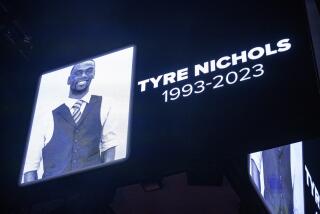Mike Nichols: Six of the late directorâs memorable movies
Mike Nichols, the pioneering director and comedian who died Wednesday night at the age of 83, leaves behind an acclaimed, varied and prolific body of work.
After breaking out as half of a satirical comedy duo with Elaine May in the late 1950s, Nichols found his niche as a director and proved equally adept at theater, television and film. Along the way he became one of the handful of EGOTs â those who have won Emmy, Grammy, Oscar and Tony awards â an especially rare feat for a director.
Although his filmmaking output was not without the occasional misstep, Nichols crafted his share of groundbreaking movies and was a consummate actorsâ director -- he directed at least a dozen actors to Oscar nominations. Following are six of his most memorable films.
âWhoâs Afraid of Virginia Woolf?â (1966)
Nichols made his feature directing debut with an adaptation of Edward Albeeâs critically acclaimed but controversially profane play about an academic coupleâs tempestuous relationship. But the casting of the headline-grabbing twosome of Elizabeth Taylor and Richard Burton proved to be an inspired choice, and the film racked up 13 Academy Award nominations, winning five, including best actress for Taylor, with the heavily dramatic spin on Albeeâs piece.
âThe Graduateâ (1967)
Nichols cemented his status as a top director and launched the career of Dustin Hoffman with âThe Graduate,â based on the Charles Webb novel about an aimless college graduate (Hoffman) who has an affair with the neglected wife (Anne Bancroft) of his fatherâs law partner and then falls for her daughter (Katharine Ross). Heralding the beginning of the New Hollywood era, the film was a critical and commercial success that earned seven Academy Award nominations and won Nichols an Oscar for best director, not to mention becoming one of the best-known movies of its era.
âSilkwoodâ (1983)
After a series of misfires including âCatch-22,â âDay of the Dolphinâ and âThe Fortune,â Nichols rebounded with this fact-based drama about a whistle-blower at a nuclear power plant. The film teamed Nichols with Meryl Streep for the first time, but not the last. They would go on to work together on âHeartburn,â âPostcards From the Edgeâ and HBOâs âAngels in America,â and had been developing âMaster Class,â an HBO piece about the opera singer Maria Callas, at the time of Nicholsâ death.
âWorking Girlâ (1988)
One of Nicholsâ warmer, wackier films, this workplace romantic comedy featured Melanie Griffith in a career role as a moxie-filled Wall Street secretary who poses as her domineering boss (Sigourney Weaver). Nichols coaxed first-rate comedic turns from Griffith, Weaver and Joan Cusack, all of whom received Oscar nominations (Griffith for lead actress, Weaver and Cusack for supporting actress). The film was also a box-office hit, grossing more than $100 million worldwide.
âThe Birdcageâ (1996)
An update of the French farce âLa Cage aux Folles,â âThe Birdcageâ would become Nicholsâ highest-grossing film, taking in $124 million domestically and another $61 million overseas. Nichols expertly corralled a star-studded cast â Robin Williams, Gene Hackman, Nathan Lane, Dianne Wiest â in the boisterous tale of a gay couple pretending to be straight so their son can introduce them to his fianceeâs conservative parents.
âCharlie Wilsonâs Warâ (2007)
Nicholsâ final film starred Tom Hanks as the titular congressman, a high-living wheeler-dealer who teamed up with a wealthy socialite (Julia Roberts) and a gruff CIA operative (Philip Seymour Hoffman) to aid Afghan mujahedin against the Soviet Union. If the film didnât reach the heights of Nicholsâ earlier successes, it did earn generally favorable reviews and was a notably entry in the directorâs latter-career phase.
Follow @ogettell for movie news
More to Read
Only good movies
Get the Indie Focus newsletter, Mark Olsen's weekly guide to the world of cinema.
You may occasionally receive promotional content from the Los Angeles Times.










